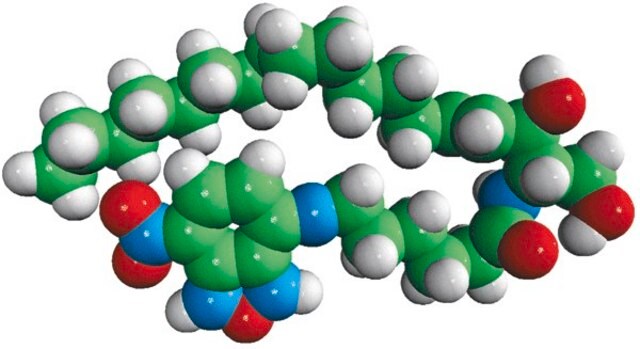01912
N-Acetyl-D-sphingosine
≥98.0% (TLC)
Synonym(s):
(2S,3R,4E)-2-(Acetylamino)-4-octadecene-1,3-diol, N-Acetoyl-D-erythro-sphingosine, Acetyl ceramide, C2 Ceramide (d18:1/2:0), C2 ceramide
About This Item
Recommended Products
Quality Level
Assay
≥98.0% (TLC)
lipid type
sphingolipids
storage temp.
−20°C
SMILES string
CCCCCCCCCCCCC\C=C\[C@H](O)[C@@H](CO)NC(C)=O
CCCCCCCCCCCCC\C=C\[C@H](O)[C@@H](CO)NC(C)=O
InChI
1S/C20H39NO3/c1-3-4-5-6-7-8-9-10-11-12-13-14-15-16-20(24)19(17-22)21-18(2)23/h15-16,19-20,22,24H,3-14,17H2,1-2H3,(H,21,23)/b16-15+/t19-,20+/m1/s1
InChI key
BLTCBVOJNNKFKC-HEQKZDDYSA-N
Looking for similar products? Visit Product Comparison Guide
Biochem/physiol Actions
Packaging
Storage Class Code
11 - Combustible Solids
WGK
WGK 3
Flash Point(F)
Not applicable
Flash Point(C)
Not applicable
Choose from one of the most recent versions:
Already Own This Product?
Find documentation for the products that you have recently purchased in the Document Library.
Our team of scientists has experience in all areas of research including Life Science, Material Science, Chemical Synthesis, Chromatography, Analytical and many others.
Contact Technical Service








